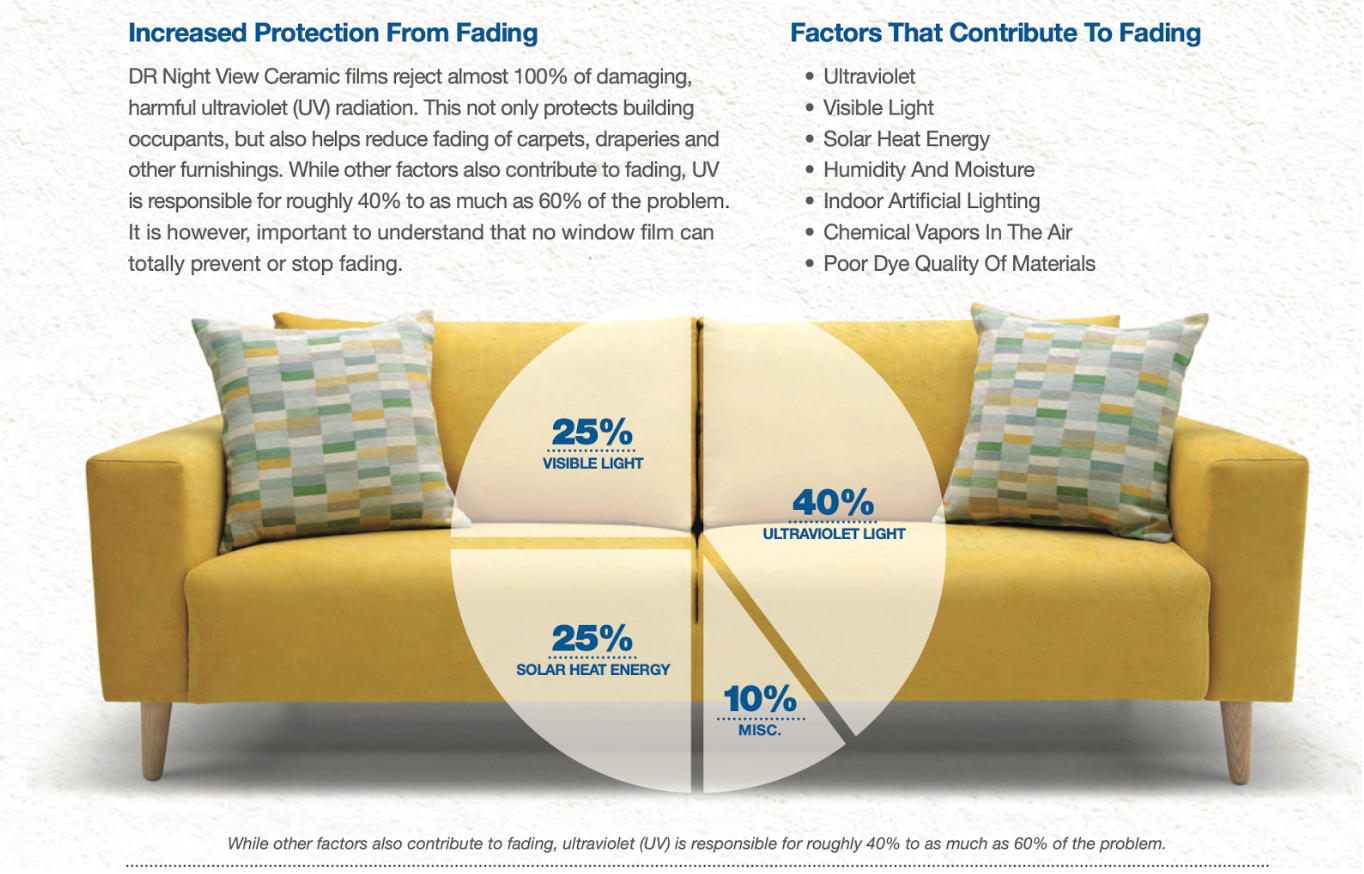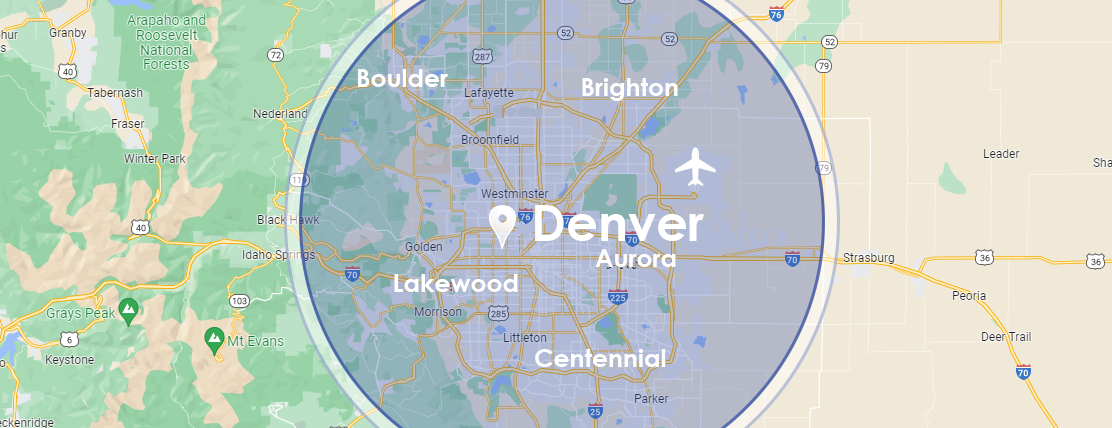Window film is designed to prevent and slow fading of your floors and furniture. Want to learn how. Read on…
What Causes Fading in Floors and Furniture in Colorado?
In Colorado’s high-altitude, high-sun environment, fading of floors, furniture, artwork, and fabrics is a common—and costly—problem. Whether you’re in Denver, Arvada, or anywhere along the Front Range, the intense sunlight can quickly degrade your interior finishes.
Fading is primarily caused by three factors:
- Visible light
- Ultraviolet (UV) radiation
- Infrared heat (solar energy)
To effectively protect your home or business, your window film must address all three.
Visible Light: Let in Daylight, Not Damage
Visible light is part of what makes a room feel bright—but too much of it accelerates fading. Our residential and commercial window films are designed to reduce visible light transmission anywhere from 5% to 70%, depending on your goals. For optimal fade reduction, we typically recommend a film with at least 40% light blockage. This level offers a noticeable reduction in fading without making your windows too dark.
Whether you're looking to protect hardwood floors in a sunny living room, leather furniture, custom cabinetry, or valuable products in a storefront, the right window tint makes a big difference. Our anti fade window film helps preserve your space’s look and value over time while still allowing natural light to flow in. Denver-area clients love how this solution balances UV and heat protection with a clean, professional appearance that doesn’t sacrifice aesthetics.
UV Radiation: The Biggest Culprit
UV rays are the most damaging element of sunlight when it comes to fading. The good news? Every window film we install at Noble Window Tinting blocks 99.9% of UV radiation—no exceptions. No matter which film you choose, you’re covered with powerful UV protection for your Denver home or office. This layer alone drastically extends the life of your interior finishes and furnishings.
Our premium
anti UV film is specifically engineered for long-term
fade prevention, helping to protect everything from hardwood floors to artwork and upholstery. Even in high-altitude areas like
Boulder or Summit county, where UV exposure is stronger year-round, our films perform exceptionally well. By blocking harmful ultraviolet rays at the source, you're not only preserving your interiors—you’re investing in the longevity of your space.
Infrared Heat: The Overlooked Fading Factor
Heat is often the most overlooked contributor to fading, but it plays a major role in the long-term damage to your interiors. Prolonged exposure to solar heat doesn’t just raise the temperature inside—it actively dries out hardwood floors, furniture, blinds, and drapes, causing materials to crack, warp, discolor, or become brittle. Over time, this heat damage breaks down the integrity of wood finishes, fabrics, and coatings, leading to expensive repairs or replacements.
What many homeowners don’t realize is that once
fading begins, it doesn’t stay gradual—it
accelerates. The more sun exposure a surface receives, the faster it continues to break down, going
faster and faster with time. That’s why early intervention with
heat-reducing window film is critical. Our films block up to
89% of total solar energy, drastically slowing the fading process and helping to preserve your investments for years to come.
Understanding Window Film Performance Specs
When choosing the right film for fade prevention, it's important to understand the numbers behind the product. At Noble Window films, we use only high-performance films that are rated and tested for the most important factors:
Visible Light Transmission (VLT)
This tells you how much visible light passes through the glass. Lower VLT means darker film, which helps reduce glare and slows fading.
UV Rejection
All our films block 99.9% of UV radiation, the leading cause of interior fading.
Total Solar Energy Rejected (TSER)
This measures how well the film blocks the sun’s heat. Our films range from 55% to 89% TSER, depending on the style and shade you select.
Infrared Rejection (IRR)
Some of our advanced films also block up to 97% of infrared light, which further improves heat reduction without darkening your windows too much.
Every home and office is different, and we tailor our recommendations based on your space’s orientation, window type, and goals—whether you're focused on UV protection, heat control, or maintaining natural light.
By understanding the science behind the specs, you can make an informed decision and choose the most effective anti fade window film for your Colorado space.




